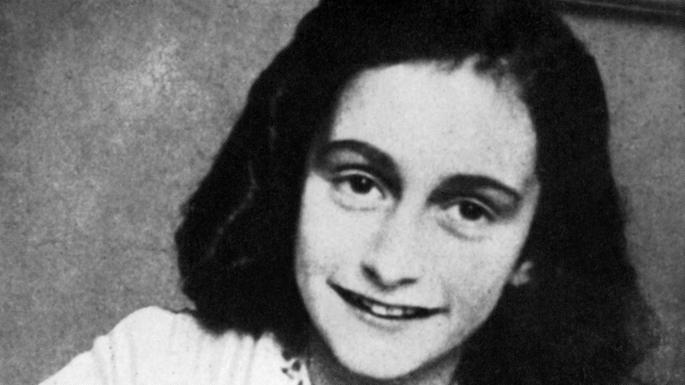Anne Frank may not have been betrayed to Nazis, study finds

Anne Frank and her companions may have been discovered in a raid on illegal rationing or labour, researchers saidAFP/GETTY IMAGES
But now experts have suggested that her hiding place was in fact discovered by chance, casting doubt on the assumption that she was compromised by a secret informer.
The world-famous diarist, 15, was among eight Jews taken to concentration camps after a raid on a house in the Netherlands in August 1944.
It has long been thought that Amsterdam’s Nazi occupiers were tipped off, but a study published yesterday suggests that focusing on betrayal blinds us to other possibilities.
Prinsengracht 263, where Anne and other Jews hid for two years, may have been raided by police investigating ration fraud or illegal labour, the Anne Frank House museum said.
The new report, analysing police reports, judicial files and Anne’s diary entries from March 1944, points to two men who were known to deal illegal food coupons in the building and had served the Frank family. The arrest and subsequent release of Martin Brouwer and Pieter Daatzelaar earlier in 1944 is mentioned in Anne’s diary and confirmed by official records. Such arrests were reported to investigators based in The Hague, who the researchers said would often chance across Jewish fugitives.
Police who discovered the annexe were more likely to work on cash and jewellery theft than Jews in hiding, researchers said.
Another possibility raised by the study is that the raid was part of an investigation into people illegally evading work.
“A company where people were working illegally and two sales representatives were arrested for dealing in ration coupons obviously ran the risk of attracting the attention of the authorities,” the report says.
“The possibility of betrayal has of course not been entirely ruled out by this, nor has any relationship between the ration coupon fraud and the arrest been proven,” and says further research is necessary.
“Clearly, the last word about that fateful summer day in 1944 has not yet been said.”
Anne died of typhus in the Bergen-Belsen concentration camp weeks before its liberation by allied forces. Her father Otto was the only fugitive in Prinsengracht 263 to survive the war.
Source: The Times
